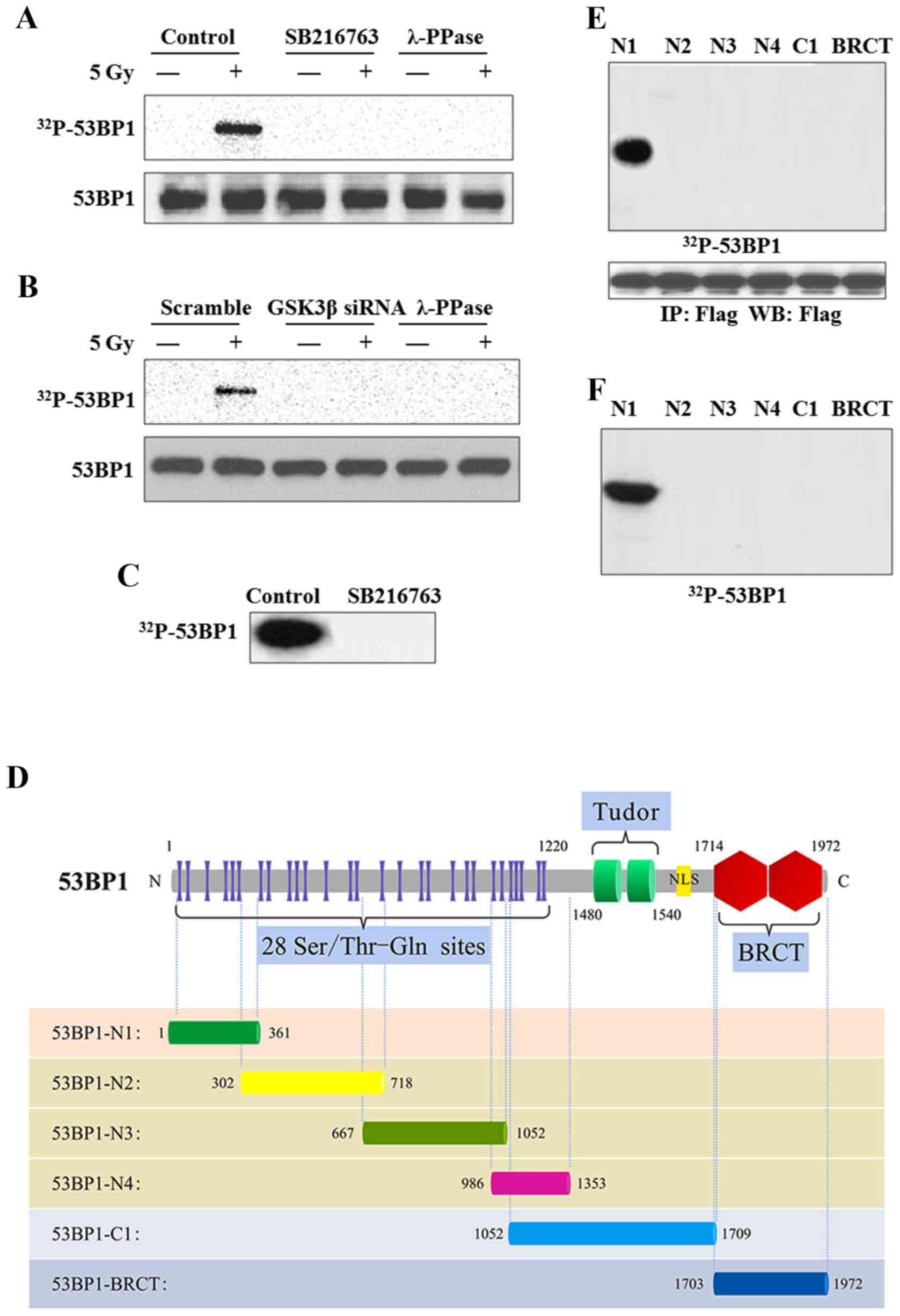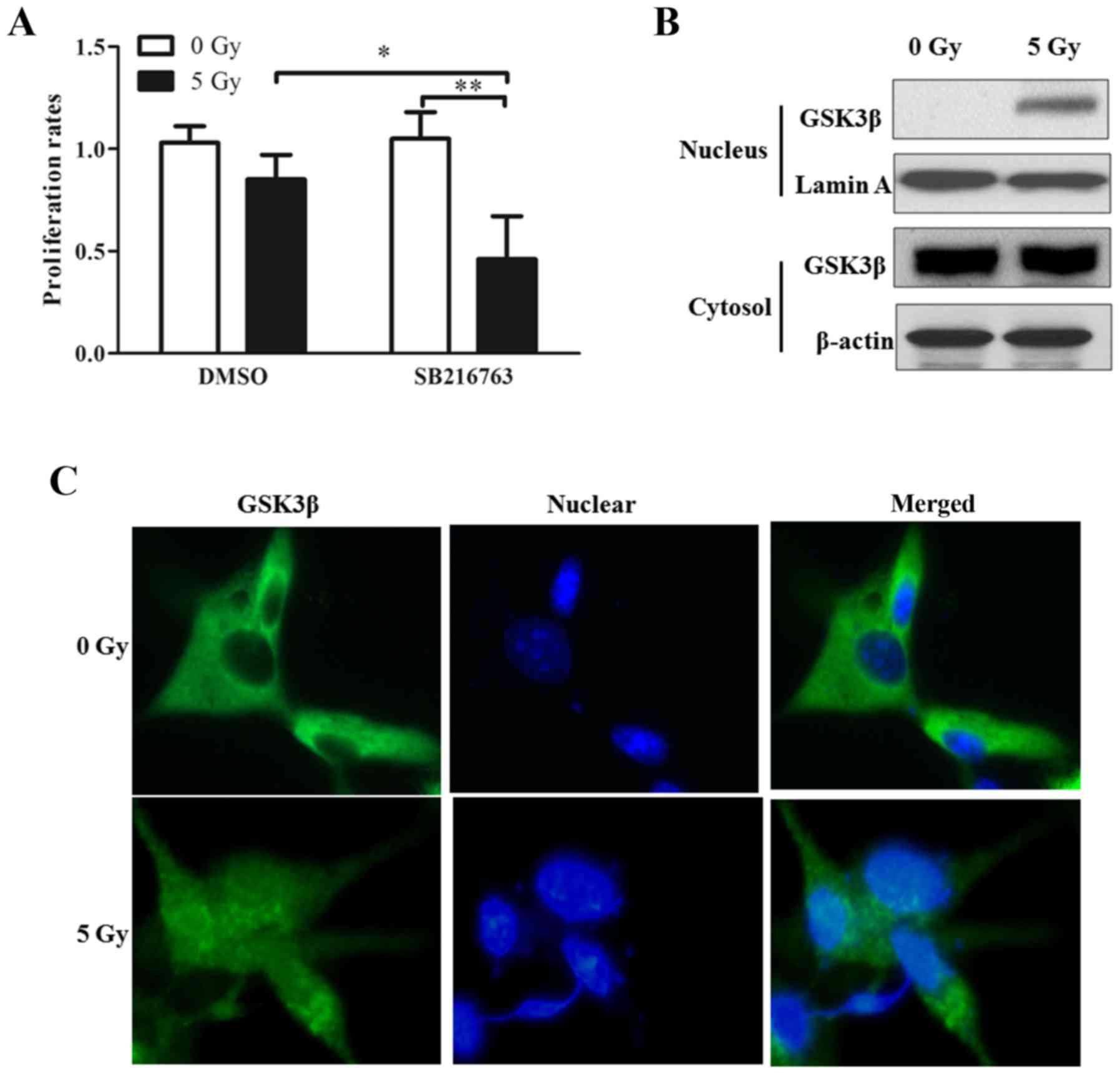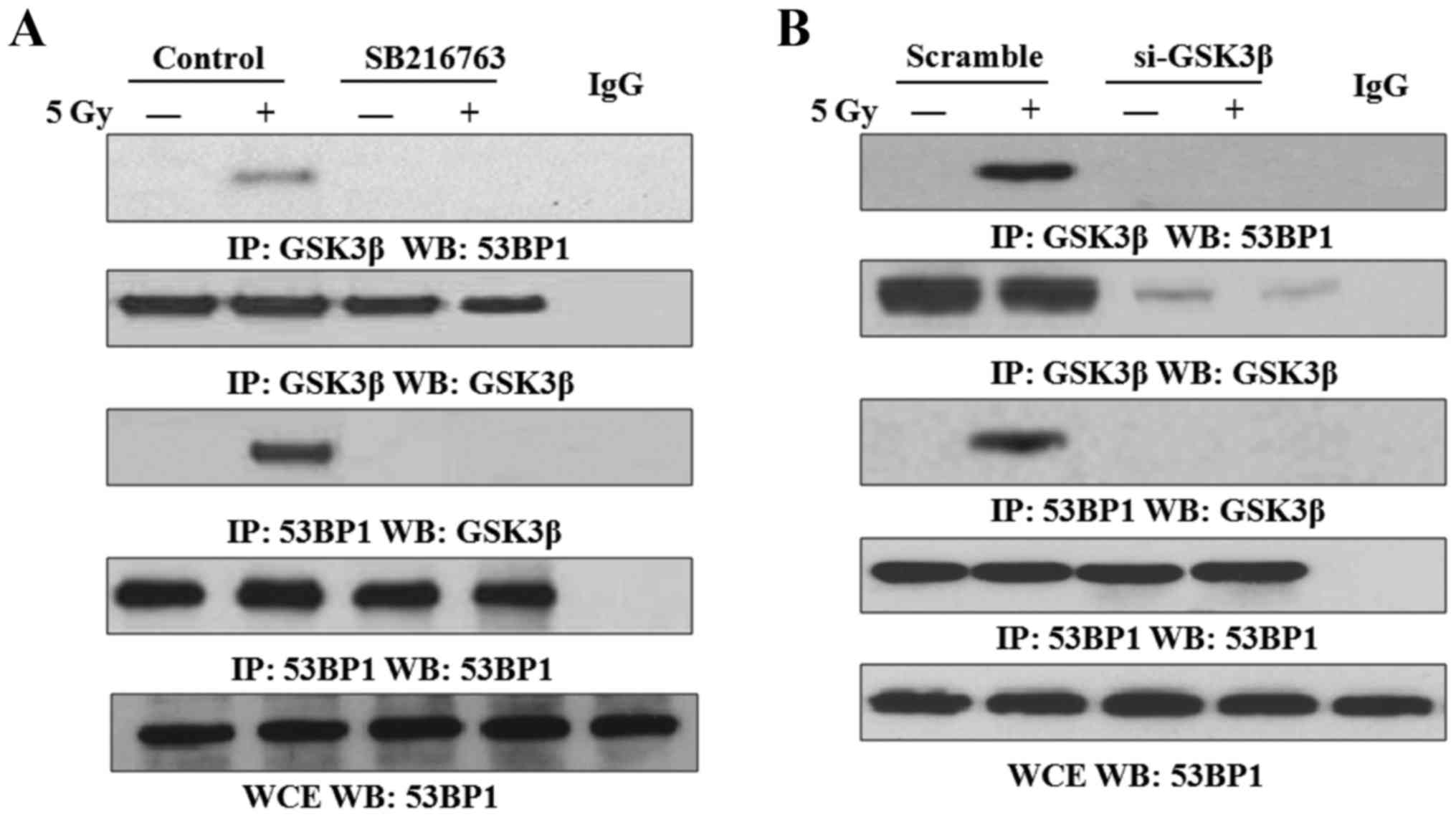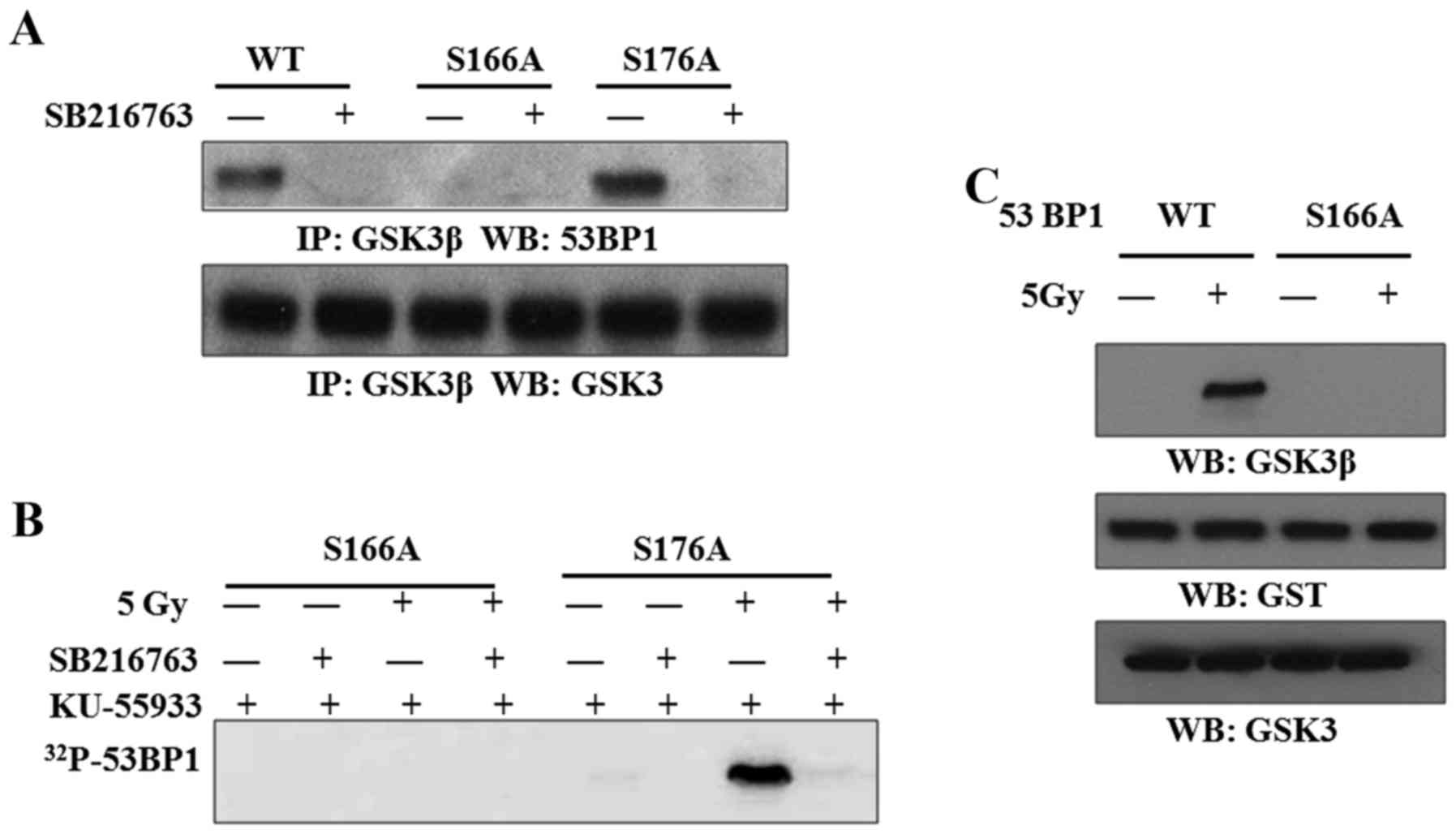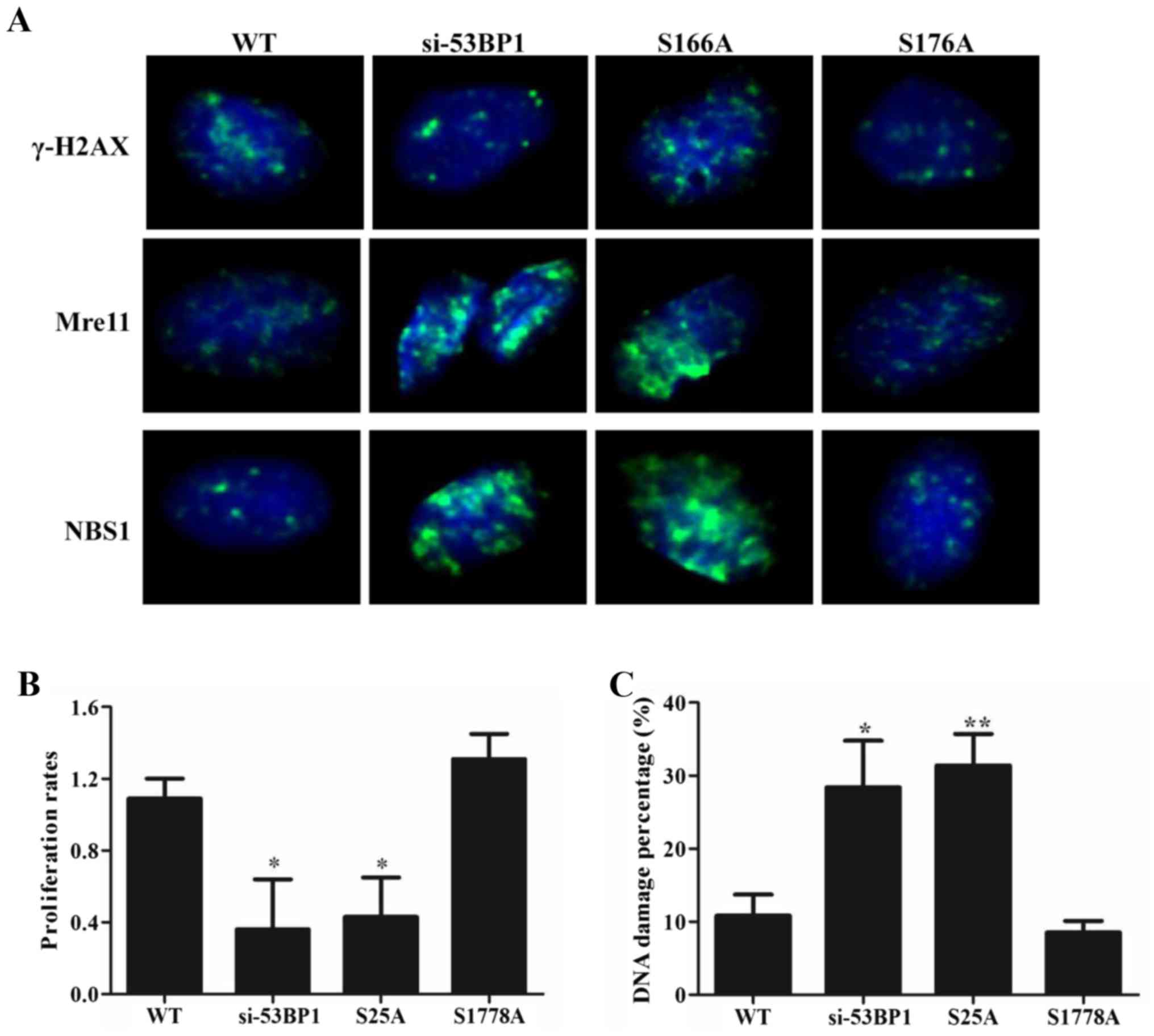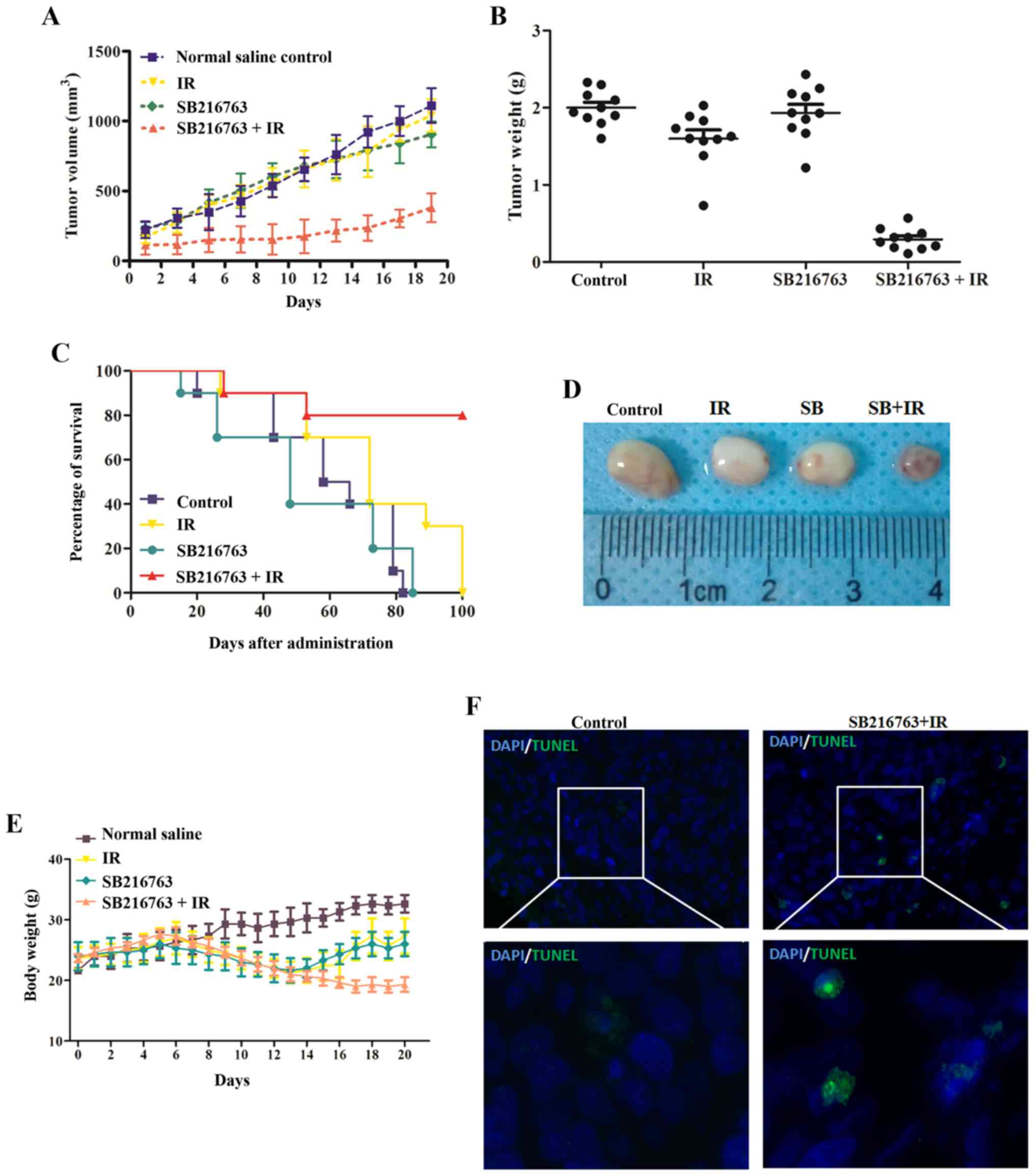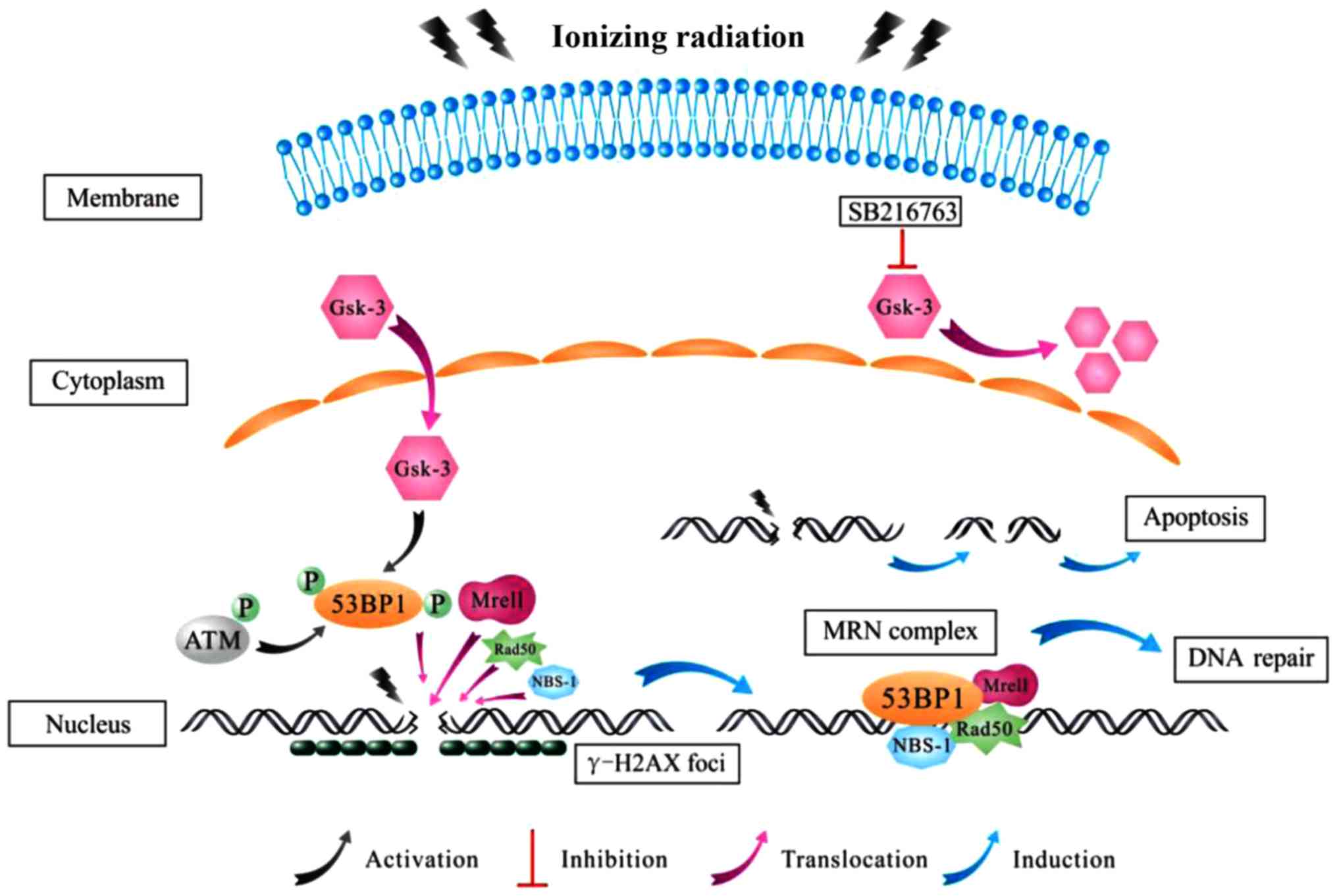|
1
|
Killock D: CNS cancer: Molecular
classification of glioma. Nat Rev Clin Oncol. 12:5022015.
View Article : Google Scholar : PubMed/NCBI
|
|
2
|
Debus J and Abdollahi A: For the next
trick: New discoveries in radiobiology applied to glioblastoma. Am
Soc Clin Oncol Educ Book. 2014:e95–e99. 2014. View Article : Google Scholar
|
|
3
|
Kioi M, Vogel H, Schultz G, Hoffman RM,
Harsh GR and Brown JM: Inhibition of vasculogenesis, but not
angiogenesis, prevents the recurrence of glioblastoma after
irradiation in mice. J Clin Invest. 120:694–705. 2010. View Article : Google Scholar : PubMed/NCBI
|
|
4
|
Felsberg J, Thon N, Eigenbrod S, Hentschel
B, Sabel MC, Westphal M, Schackert G, Kreth FW, Pietsch T, Löffler
M, et al German Glioma Network: Promoter methylation and expression
of MGMT and the DNA mismatch repair genes MLH1, MSH2, MSH6 and PMS2
in paired primary and recurrent glioblastomas. Int J Cancer.
129:659–670. 2011. View Article : Google Scholar : PubMed/NCBI
|
|
5
|
Delfino KR, Serão NV, Southey BR and
Rodriguez-Zas SL: Therapy-, gender- and race-specific microRNA
markers, target genes and networks related to glioblastoma
recurrence and survival. Cancer Genomics Proteomics. 8:173–183.
2011.PubMed/NCBI
|
|
6
|
Bao S, Wu Q, McLendon RE, Hao Y, Shi Q,
Hjelmeland AB, Dewhirst MW, Bigner DD and Rich JN: Glioma stem
cells promote radioresistance by preferential activation of the DNA
damage response. Nature. 444:756–760. 2006. View Article : Google Scholar : PubMed/NCBI
|
|
7
|
Panier S and Boulton SJ: Double-strand
break repair: 53BP1 comes into focus. Nat Rev Mol Cell Biol.
15:7–18. 2014. View
Article : Google Scholar
|
|
8
|
Schultz LB, Chehab NH, Malikzay A and
Halazonetis TD: p53 binding protein 1 (53BP1) is an early
participant in the cellular response to DNA double-strand breaks. J
Cell Biol. 151:1381–1390. 2000. View Article : Google Scholar
|
|
9
|
Squatrito M, Vanoli F, Schultz N, Jasin M
and Holland EC: 53BP1 is a haploinsufficient tumor suppressor and
protects cells from radiation response in glioma. Cancer Res.
72:5250–5260. 2012. View Article : Google Scholar : PubMed/NCBI
|
|
10
|
Rappold I, Iwabuchi K, Date T and Chen J:
Tumor suppressor p53 binding protein 1 (53BP1) is involved in DNA
damage-signaling pathways. J Cell Biol. 153:613–620. 2001.
View Article : Google Scholar : PubMed/NCBI
|
|
11
|
Doble BW and Woodgett JR: GSK-3: Tricks of
the trade for a multi-tasking kinase. J Cell Sci. 116:1175–1186.
2003. View Article : Google Scholar : PubMed/NCBI
|
|
12
|
Hoeflich KP, Luo J, Rubie EA, Tsao MS, Jin
O and Woodgett JR: Requirement for glycogen synthase kinase-3beta
in cell survival and NF-kappaB activation. Nature. 406:86–90. 2000.
View Article : Google Scholar : PubMed/NCBI
|
|
13
|
Sugden PH, Fuller SJ, Weiss SC and Clerk
A: Glycogen synthase kinase 3 (GSK3) in the heart: A point of
integration in hypertrophic signalling and a therapeutic target? A
critical analysis. Br J Pharmacol. 153(Suppl 1): S137–S153. 2008.
View Article : Google Scholar : PubMed/NCBI
|
|
14
|
Gao C, Hölscher C, Liu Y and Li L: GSK3: A
key target for the development of novel treatments for type 2
diabetes mellitus and Alzheimer disease. Rev Neurosci. 23:1–11.
2011. View Article : Google Scholar
|
|
15
|
Kim L and Kimmel AR: GSK3, a master switch
regulating cell-fate specification and tumorigenesis. Curr Opin
Genet Dev. 10:508–514. 2000. View Article : Google Scholar : PubMed/NCBI
|
|
16
|
Luo J: Glycogen synthase kinase 3beta
(GSK3beta) in tumori-genesis and cancer chemotherapy. Cancer Lett.
273:194–200. 2009. View Article : Google Scholar
|
|
17
|
Marchand B, Arsenault D, Raymond-Fleury A,
Boisvert FM and Boucher MJ: Glycogen synthase kinase-3 (GSK3)
inhibition induces prosurvival autophagic signals in human
pancreatic cancer cells. J Biol Chem. 290:5592–5605. 2015.
View Article : Google Scholar : PubMed/NCBI
|
|
18
|
Shakoori A, Ougolkov A, Yu ZW, Zhang B,
Modarressi MH, Billadeau DD, Mai M, Takahashi Y and Minamoto T:
Deregulated GSK3beta activity in colorectal cancer: Its association
with tumor cell survival and proliferation. Biochem Biophys Res
Commun. 334:1365–1373. 2005. View Article : Google Scholar : PubMed/NCBI
|
|
19
|
Yook JI, Li XY, Ota I, Hu C, Kim HS, Kim
NH, Cha SY, Ryu JK, Choi YJ, Kim J, et al: A Wnt-Axin2-GSK3beta
cascade regulates Snail1 activity in breast cancer cells. Nat Cell
Biol. 8:1398–1406. 2006. View
Article : Google Scholar : PubMed/NCBI
|
|
20
|
Mulholland DJ, Dedhar S, Wu H and Nelson
CC: PTEN and GSK3beta: Key regulators of progression to
androgen-independent prostate cancer. Oncogene. 25:329–337. 2006.
View Article : Google Scholar : PubMed/NCBI
|
|
21
|
Miyashita K, Kawakami K, Nakada M, Mai W,
Shakoori A, Fujisawa H, Hayashi Y, Hamada J and Minamoto T:
Potential therapeutic effect of glycogen synthase kinase 3beta
inhibition against human glioblastoma. Clin Cancer Res. 15:887–897.
2009. View Article : Google Scholar : PubMed/NCBI
|
|
22
|
Kotliarova S, Pastorino S, Kovell LC,
Kotliarov Y, Song H, Zhang W, Bailey R, Maric D, Zenklusen JC, Lee
J, et al: Glycogen synthase kinase-3 inhibition induces glioma cell
death through c-MYC, nuclear factor-kappaB, and glucose regulation.
Cancer Res. 68:6643–6651. 2008. View Article : Google Scholar : PubMed/NCBI
|
|
23
|
Ougolkov AV, Fernandez-Zapico ME, Bilim
VN, Smyrk TC, Chari ST and Billadeau DD: Aberrant nuclear
accumulation of glycogen synthase kinase-3beta in human pancreatic
cancer: association with kinase activity and tumor
dedifferentiation. Clin Cancer Res. 12:5074–5081. 2006. View Article : Google Scholar : PubMed/NCBI
|
|
24
|
Zhou A, Lin K, Zhang S, Chen Y, Zhang N,
Xue J, Wang Z, Aldape KD, Xie K, Woodgett JR, et al: Nuclear GSK3β
promotes tumorigenesis by phosphorylating KDM1A and inducing its
deubiquitylation by USP22. Nat Cell Biol. 18:954–966. 2016.
View Article : Google Scholar : PubMed/NCBI
|
|
25
|
Allen M, Bjerke M, Edlund H, Nelander S
and Westermark B: Origin of the U87MG glioma cell line: Good news
and bad news. Sci Transl Med. 8:354re32016. View Article : Google Scholar : PubMed/NCBI
|
|
26
|
Boyé K, Pujol N, D Alves I, Chen YP,
Daubon T, Lee YZ, Dedieu S, Constantin M, Bello L, Rossi M, et al:
The role of CXCR3/LRP1 cross-talk in the invasion of primary brain
tumors. Nat Commun. 8:15712017. View Article : Google Scholar : PubMed/NCBI
|
|
27
|
Volpin F, Casaos J, Sesen J, Mangraviti A,
Choi J, Gorelick N, Frikeche J, Lott T, Felder R, Scotland SJ, et
al: Use of an anti-viral drug, Ribavirin, as an anti-glioblastoma
therapeutic. Oncogene. 36:3037–3047. 2017. View Article : Google Scholar
|
|
28
|
Korur S, Huber RM, Sivasankaran B, Petrich
M, Morin P Jr, Hemmings BA, Merlo A and Lino MM: GSK3beta regulates
differentiation and growth arrest in glioblastoma. PLoS One.
4:e74432009. View Article : Google Scholar : PubMed/NCBI
|
|
29
|
Beckner ME, Gobbel GT, Abounader R,
Burovic F, Agostino NR, Laterra J and Pollack IF: Glycolytic glioma
cells with active glycogen synthase are sensitive to PTEN and
inhibitors of PI3K and gluconeogenesis. Lab Invest. 85:1457–1470.
2005. View Article : Google Scholar : PubMed/NCBI
|
|
30
|
Bijur GN and Jope RS: Glycogen synthase
kinase-3 β is highly activated in nuclei and mitochondria.
Neuroreport. 14:2415–2419. 2003. View Article : Google Scholar : PubMed/NCBI
|
|
31
|
Williams RS, Williams JS and Tainer JA:
Mre11-Rad50-Nbs1 is a keystone complex connecting DNA repair
machinery, double-strand break signaling, and the chromatin
template. Biochem Cell Biol. 85:509–520. 2007. View Article : Google Scholar : PubMed/NCBI
|
|
32
|
Jowsey P, Morrice NA, Hastie CJ,
McLauchlan H, Toth R and Rouse J: Characterisation of the sites of
DNA damage-induced 53BP1 phosphorylation catalysed by ATM and ATR.
DNA Repair (Amst). 6:1536–1544. 2007. View Article : Google Scholar
|
|
33
|
Harding SM, Coackley C and Bristow RG:
ATM-dependent phosphorylation of 53BP1 in response to genomic
stress in oxic and hypoxic cells. Radiother Oncol. 99:307–312.
2011. View Article : Google Scholar : PubMed/NCBI
|
|
34
|
Jope RS and Johnson GV: The glamour and
gloom of glycogen synthase kinase-3. Trends Biochem Sci. 29:95–102.
2004. View Article : Google Scholar : PubMed/NCBI
|
|
35
|
Wu D and Pan W: GSK3: A multifaceted
kinase in Wnt signaling. Trends Biochem Sci. 35:161–168. 2010.
View Article : Google Scholar :
|
|
36
|
Hur EM and Zhou FQ: GSK3 signalling in
neural development. Nat Rev Neurosci. 11:539–551. 2010. View Article : Google Scholar : PubMed/NCBI
|
|
37
|
Abraham RT: Checkpoint signalling:
Focusing on 53BP1. Nat Cell Biol. 4:E277–E279. 2002. View Article : Google Scholar : PubMed/NCBI
|
|
38
|
Ward IM, Minn K, van Deursen J and Chen J:
p53 binding protein 53BP1 is required for DNA damage responses and
tumor suppression in mice. Mol Cell Biol. 23:2556–2563. 2003.
View Article : Google Scholar : PubMed/NCBI
|
|
39
|
Wang B, Matsuoka S, Carpenter PB and
Elledge SJ: 53BP1, a mediator of the DNA damage checkpoint.
Science. 298:1435–1438. 2002. View Article : Google Scholar : PubMed/NCBI
|
|
40
|
DiTullio RA Jr, Mochan TA, Venere M,
Bartkova J, Sehested M, Bartek J and Halazonetis TD: 53BP1
functions in an ATM-dependent checkpoint pathway that is
constitutively activated in human cancer. Nat Cell Biol.
4:998–1002. 2002. View
Article : Google Scholar : PubMed/NCBI
|
|
41
|
Ward IM, Minn K, Jorda KG and Chen J:
Accumulation of checkpoint protein 53BP1 at DNA breaks involves its
binding to phosphorylated histone H2AX. J Biol Chem.
278:19579–19582. 2003. View Article : Google Scholar : PubMed/NCBI
|
|
42
|
Anderson L, Henderson C and Adachi Y:
Phosphorylation and rapid relocalization of 53BP1 to nuclear foci
upon DNA damage. Mol Cell Biol. 21:1719–1729. 2001. View Article : Google Scholar : PubMed/NCBI
|
|
43
|
Xia Z, Morales JC, Dunphy WG and Carpenter
PB: Negative cell cycle regulation and DNA damage-inducible
phosphorylation of the BRCT protein 53BP1. J Biol Chem.
276:2708–2718. 2001. View Article : Google Scholar
|















